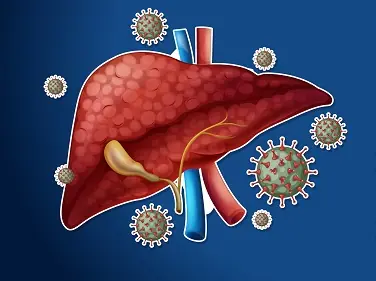
This Is What Happens to Your Body If You Eat Canned Tuna Every Day
Canned tuna is one of the most popular pantry staples around the world. Its long shelf life, affordability, and impressive nutritional value make it an easy go-to option for quick meals. However, while it provides many health benefits, eating it every day can also lead to some unwanted effects on your body. Understanding both the advantages and potential risks can help you make smarter dietary choices.
Below, we explore how daily canned tuna consumption can impact your body — both positively and negatively — and what you can do to enjoy it safely.
A Convenient Source of High-Quality Protein
Canned tuna is an excellent source of lean, high-quality protein — a vital nutrient your body needs for building and repairing tissues, including muscles, skin, and internal organs.
A typical 100-gram serving provides roughly 25 grams of protein, making it an ideal addition for athletes, fitness enthusiasts, or anyone aiming to maintain a balanced diet. Protein also helps regulate hormones, support immune function, and keep you feeling full for longer, which can assist in weight management.
Including canned tuna in your lunch salads, sandwiches, or rice bowls can be a quick and nutritious way to boost your daily protein intake without excess calories or fat.
Rich in Omega-3 Fatty Acids for Heart and Brain Health

Tuna is well-known for being a rich source of omega-3 fatty acids, particularly EPA and DHA — compounds that play a crucial role in cardiovascular and brain health. These healthy fats help reduce inflammation, lower triglyceride levels, and improve overall heart function.
Regular intake of omega-3s is also associated with better memory, concentration, and mood regulation. For individuals who don’t consume enough fresh fish, canned tuna can be a practical way to obtain these essential fats. Still, balance is key, as overconsumption can expose you to other risks discussed later.
Packed with Vitamins and Essential Minerals
Canned tuna delivers a wide range of important micronutrients, including vitamin D, vitamin B12, selenium, phosphorus, and niacin.
-
Vitamin D strengthens bones and supports immune defense.
-
Vitamin B12 helps in red blood cell formation and promotes a healthy nervous system.
-
Selenium, a trace mineral, functions as a powerful antioxidant that protects cells from oxidative damage.
Eating canned tuna regularly can therefore contribute to a stronger immune system and improved energy metabolism. However, it’s still best to complement it with fresh vegetables, fruits, and whole grains to ensure you’re meeting all your nutritional needs.
Mercury Exposure: The Main Health Concern

One of the most significant downsides of consuming canned tuna daily is the potential for mercury buildup. Mercury is a toxic heavy metal that can accumulate in the body over time, potentially leading to neurological and developmental problems.
Pregnant women, breastfeeding mothers, and young children are especially vulnerable and should limit their intake more strictly.
According to the U.S. Food and Drug Administration (FDA), adults should limit tuna consumption to no more than 2–3 servings per week, depending on the type of tuna. “Light tuna” generally contains less mercury than “white” or “albacore” tuna.
Watch Out for Excessive Sodium
Canned tuna is sometimes preserved in brine or salted water, which can significantly increase its sodium content. High sodium intake is linked to hypertension (high blood pressure) and a greater risk of heart disease and stroke.
To reduce your sodium load:
-
Choose tuna packed in water instead of oil or brine.
-
Look for low-sodium or no-salt-added labels.
-
Rinse the tuna briefly before eating to wash off some of the excess salt.
BPA in Packaging: A Hidden Chemical Risk
Another health consideration comes from bisphenol A (BPA) — a chemical sometimes used to line metal cans to prevent corrosion. Studies have linked BPA exposure to hormonal imbalances, reproductive issues, and an increased risk of certain cancers.
Whenever possible, choose BPA-free brands or look for tuna packaged in glass jars or pouches as safer alternatives.
Other Concerns with Canned Foods
-
Preservatives and Additives: Some canned tuna products may contain preservatives or flavor enhancers to extend shelf life or improve taste. Reading labels carefully and opting for minimally processed options can help reduce exposure to unnecessary additives.
-
Quality of Fish: Not all canned tuna comes from high-quality or sustainably sourced fish. Lower-grade products might have reduced nutritional value or contain more contaminants.
-
Loss of Heat-Sensitive Nutrients: The canning process can slightly reduce certain vitamins — especially some B vitamins and vitamin C. Balancing your diet with fresh fish or other protein sources ensures a more complete nutrient intake.
Smart Recommendations for Safe, Healthy Consumption
To enjoy canned tuna as part of a balanced diet while minimizing health risks, consider the following tips:
-
Rotate Your Protein Sources: Alternate tuna with other protein-rich foods like salmon, chicken, eggs, legumes, tofu, or lentils to lower your mercury exposure.
-
Select Water-Packed, Low-Sodium Options: These versions are generally lower in calories and better for heart health.
-
Limit Frequency: Stick to 2–3 servings per week for adults. Pregnant women and children should consume even less, based on healthcare guidance.
-
Choose BPA-Free Packaging: Always check for BPA-free labeling or opt for pouch packaging.
-
Balance Your Diet: Complement canned tuna with fiber-rich vegetables, whole grains, and fruits to ensure optimal nutrition and digestive health.
Final Thoughts
Canned tuna can absolutely be part of a healthy, balanced diet — it’s nutritious, convenient, and versatile. However, moderation is crucial. Overconsumption may expose you to unwanted substances like mercury, sodium, or BPA. By making mindful choices and alternating with other protein sources, you can enjoy all the benefits of tuna while minimizing potential health risks.
News in the same category


IF YOUR BODY SHOWS THESE EARLY WARNING SIGNS YOU NEED TO GET YOUR KIDNEY CHECKED FAST

Vertical Nail Ridges? Here’s What Causes Them — and How to Fix It

Top 5 Nutrients to Reduce Swelling in Feet and Legs

If you sleep with socks on, see what happens

Each Tooth Is Connected to an Organ in the Body – How Tooth Pain May Reveal Hidden Health Problems

7 Heart-Healing Foods Your Cardiologist Won’t Tell You About

What Happens When You Eat 3 Whole Eggs Every Day…You’ll Be Surprised What It Does To Your Body!

This Is What Happens To Your Body The Day You Stop Eating Bread

14 Symptoms of Liver Damage You Need to Know

17 Foods That Increase Magnesium And Prevent High Blood Pressure, Blood Clots And Muscle Fatigue

Mix Castor Oil and Rosemary — The 7-Day Results Will Surprise You

This Is What Happens to Your Body the Day You Stop Eating Bread

14 Symptoms of Liver Damage You Need to Know

Prepare Ginger This Way to Prevent Cancer, Reduce Cholesterol, and Lower Blood Sugar Levels

How to effectively cleanse your lungs in just 72 hours

Scientists find a berry that can combat cancer, diabetes, and obesity

Doctors reveal that consuming pumpkin causes in...

🚨 The Silent Danger: Early Signs and Prevention of Colorectal Cancer
News Post

I had no clue about this

I had no clue about this!

I had no idea

He drank hot tea every day. The results of his health check left him stunned

I had no idea

IF YOUR BODY SHOWS THESE EARLY WARNING SIGNS YOU NEED TO GET YOUR KIDNEY CHECKED FAST

People left 'speechless' after noticing new addition to the White House website

Neuroscientist reveals chilling things he saw while in a coma as he explains what it really feels like

I had no clue about this!

You’re doing it all wrong. Here’s the right way to defrost food

I had no clue about this!

Vertical Nail Ridges? Here’s What Causes Them — and How to Fix It

The Unseen Heroes: A Rescue Dog's Loyalty That Saved My Life

Barrett’s Miracle: A Journey of Faith, Strength, and Prayer

A Farewell to a Friend and His Passion for Music

Top 5 Nutrients to Reduce Swelling in Feet and Legs

A Rare Encounter: The Moment a Mountain Lion Meets a Baby

Stray Cats Bring a Bitcoin Mine to a Standstill — And Melt Hearts in the Process

If you sleep with socks on, see what happens
